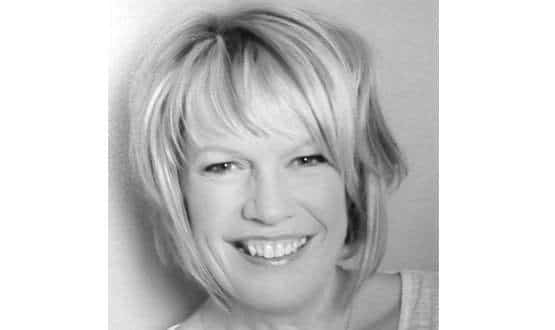Two thousand lives
- 16 April 2013

Over the next 12 months, Kent aims to increase the number of people actively using telehealth and telecare to 10,000.
This ambitious target does not faze Alison Davis, head of innovation, research and development at Kent and Medway Commissioning Support Service, who believes it is achievable.
She says: “At the moment our telehealth service is not big enough to reap the financial benefits; but we will make that happen, supported by developing a new procurement model.”
New models for old
Davis , who will be outlining Kent’s progress and plans in more detail at EHI’s Information for Commissioning conference next month , says work to develop an “outcome based procurement model” is Kent’s contribution to the 3million lives project.
The county is one of seven areas of England that were selected as ‘pathfinders’ for the Department of Health project , which was launched in the wake of the publication of ‘headline’ findings from the Whole Systems Demonstrator programme.
3millionlives aims to kickstart the industry by getting 3m people using assistive technology by 2017. It has set all pathfinders the target of reaching 10,000 users by the end of this financial year.
However, it has proved controversial, because more detailed reports from the WSD programme have cast doubt on the value and cost-effectiveness of telehealth and telecare.
The latest report in the BMJ concluding that even when benefits are delivered they are at a cost per quality adjusted life year that is far above NICE’s threshold for new treatments and interventions.
Meanwhile, EHI research has shown that many of the pathfinders are struggling to meet their recruitment targets. Despite this, Davis believes new procurement models for telehealth will help to deliver both the numbers and the benefits required.
She says: “Our procurement at the moment is a capital-based model, which is not good for a number of reasons. Firstly, we own equipment – which will become obsolete – and, secondly, once you have bought the equipment it then becomes an ‘add on’ rather than something which is embedded into the clinical pathway.”
Reworking the funding, business, and clinical models
The model Kent is working on, but which Davis acknowledges is at an early stage, is to bring together community providers, acute providers, primary care and even the local ambulance trust. The idea is that they will all work collaboratively with technology providers to deliver identified outcomes for specified groups of patients.
As a collaborative, there will be financial incentives for delivering outcomes; and this should create a different environment to the one created by the Payment by Results tariffs, in which the use of technology that keeps somebody out of hospital effectively means lost revenue for the acute trust.
Davis adds: “The aim is to have shared risks and shared rewards.” Outcomes might include reductions in unplanned admissions and in length of stay in hospital, an increase in independent living, and in patient-assessed quality of life.
Davis says she hopes the alliance will embed technology along the whole patient pathway and this will be done by providers working closely with the technology industry.
“We want to move away from buying kit to a revenue based technology service; which you might describe as pay as you go.”
Kent already has a range of telehealth projects up and running. These include projects to target telehealth at patients who are frequent attenders at A&E, to identify patients who may become frequent attenders at GP practice level using risk stratification, and using telemedicine technology to allow hospice staff to assess patients at home.
Davis adds: “Telehealth is currently focused on people with complex long term conditions. Our intention is to use the appropriate technology at an earlier part of the pathway to support self-management.”
All eight clinical commissioning groups in Kent and Medway have signed up to use of technology in clinical pathways.
Davis adds: “They are all interested in outcomes and efficiencies and like the rest of the country there is a focus on long term conditions and dementia. The discussions now are really about the ‘how’ of delivering it.”
If, at first…
The Kent CCGs’ interest in assistive technology is in contrast to other areas of the country where CCGs have appeared less enthusiastic, perhaps because of the mixed press telehealth has had in the past year or two.
Davis accepts that reviews have been mixed, but says there are positives to take from the WSD project, which had 2,000 participants in Kent using telecare and telehealth.
She reiterates: “The financial case was not made, but that is why we are working on different models that will make the financial case better and also getting efficiencies through scale. But it’s not just a numbers game; it’s about getting the best outcomes for patients.”
The 3millionlives project is being run in Kent in conjunction with Kent County Council and Kent Community Health NHS Trust.
The three bodies are trying to bring together telecare and telehealth under one umbrella with joint commissioning and integrated care – which is another target for all the Kent CCGs.
Kent has a long history of involvement in telecare and telehealth and was one of the first in the country to invest in such services as far back as 2004.
Davis is keen to emphasise that involvement in the WSD project and the 3millionlives project has been about developing new services and learning from them, rather than being about having all the answers from the start.
“For example we changed our patient criteria after WSD, and with all our experience since 2004 we can now say ‘this is what we have learnt since then and this is where we are going’. It won’t be right first time but we will learn from it and change as a result.”

EHI Information for Commissioning is a new event from EHI Primary Care, focused on the IT and information needs of clinical commissioning groups and their commissioning support providers. The event will take place on Wednesday, 15 May at the Royal College of General Practitioners in Euston Square, London.
To see the full programme and to book a place, visit the Information for Commissioning website. For information about exhibiting, contact Neil Hadland.




